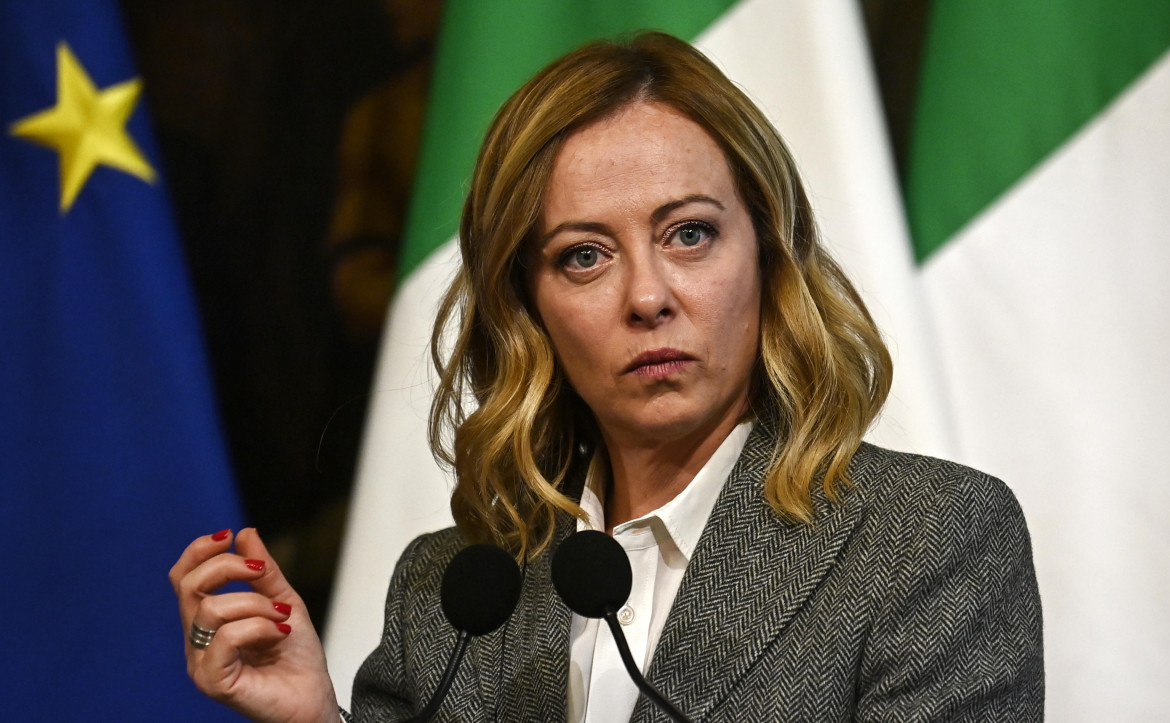Commentary
Giorgia Meloni sums up the right’s hatred of the poor in one sentence
“If you aren’t available to work,” Meloni said, “you cannot expect to be supported with the money of those who work every day.”

The driving force behind the hatred of the poor is the idea of “work.” Not just the work that is available – precarious, brutal, paid worse and worse, sometimes even unpaid altogether – but, most importantly, the work that doesn’t exist.
This nonexistent work is what the “employable poor” – those considered “fit for work” – are supposed to be chasing after, enrolling in the rigmarole of training courses, hoping these will lead to a job, no matter what that happens to be, and hoping they will get the paltry €350 per month that they’re promised during the process. Even enrolling in the courses doesn’t guarantee they will get any money at all, according to news reports in recent weeks.
Those among the “employable” who find themselves trapped in this circle of hell were given another tongue lashing on Wednesday by Giorgia Meloni, speaking during “prime minister time.”
“If you aren’t available to work,” she said, “you cannot expect to be supported with the money of those who work every day.”
Her words speak volumes. She means to say that poverty is the fault of those who don’t want to work. Because, as everyone knows, those among the poor who have jobs are doing great. They’ve redeemed themselves from the guilt of poverty. They’ve emancipated themselves from need. They’ve been raised up into the paradise of commodities and are blissfully enjoying it. The history of capitalism is littered with examples of such appalling discourse. They were already there between 1597 and 1601, when Elizabeth I passed the first “poor laws” in England. Today, we may be in a different time, but we’re still in the same place. The poor don’t escape poverty, even when they work. They’re called the “working poor.” This Anglo-American euphemism is there to cover up the awfulness of a life spent in need, and it does nothing to avoid adding insult to injury when someone loses their job and cannot find another.
Meloni’s words are also dishonest. What she didn’t say was that her government changed the criteria by which the poor person’s “availability to work” is evaluated. These criteria have nothing to do with an individual’s willingness to work but are being used to cast moral condemnation, contrasting them with those who “work every day” – in a line of thought that ends with branding those who receive public assistance as “lazy” or “moochers.”
Specifically, we are talking about the lowering of the maximum threshold of estimated income, according to the indicator of equivalent economic situation (ISEE), from €9,360 to €6,000 per year in order to access the new measure. This is not a technicality but a political issue. This rule has excluded many of the “employable” from access to “training and employment support,” the measure intended for them, parallel to the “inclusion allowance” intended for the poor deemed “unfit for work.” The data was provided by Meloni herself: out of 249,000 potential “employable” people who had been receiving the citizenship income, only 55,000 applied for the new measure, just over 22 percent.
“It is possible that some of these people have found work by themselves,” the prime minister said, “but it is also possible that some of them were not looking for employment or preferred to work off the books: this is the reason why I am very proud of the work we have done.”
What kind of work people with ISEE incomes above €6,000 but below €9,350 are able to find is left to the reader’s imagination. And one can hardly be shocked that it would be off the books. Once again, Meloni missed the essential point: the problem wouldn’t exist at all if there were employers willing to hire people legally and not exploit them “off the books”; if there was a government willing to clear the jungle of precarious contracts; if there was a welfare state with a basic income, a fair tax system and a public health and school system that weren’t being crushed in the grip of corporatization. Not to mention “differentiated autonomy,” coming soon, which will wreak even more havoc.
Passing responsibility for a system down to its victims is the aim of those who want to rule over the poor, not free society from poverty. There are some who are “proud” of that, like Meloni. Those who are criticizing her today need only point out that a stricter threshold on public assistance is not in fact the same as “abolishing poverty,” to quote the words of a previous occupant of the Palazzo Chigi.
Originally published at https://ilmanifesto.it/meloni-lodio-dei-poveri-concentrato-in-una-frase on 2024-01-25
